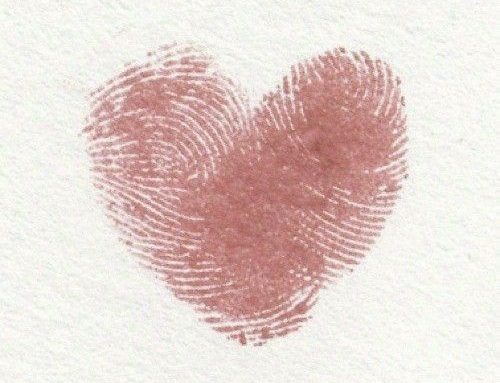I asked my dear friend Jambo Troung to share his knowledge and wisdom on trauma and addiction. I have had the privilege to train in anatomy and bodywork with Jambo who is a master of meditation, ceremony, Chinese medicine and guardian of Forrest Yoga. He is also an experienced bodywork teacher based on his multi-discipline practice of structural alignment, muscle testing and classical East Asian medicine. As a Forrest Yoga Guardian he is committed to delivering the healing practice of yoga in its most authentic form. He supplements asana workshops with sessions on functional anatomy, neuroscience, applied kinesiology and structural bodywork, he believes that the foundation for physical and emotional growth walk side by side. These are his words.
“I hope to share with you a basic framework for understanding attitudes towards addiction, its prevalence and a perspective on what to do if you find yourself wondering about your own behaviours. I have spent 15 years working within the field of substance misuse and mental health. I used a plethora of complementary and alternative treatment protocols to aid an individual’s recovery. Here I would like to share with you an alternative way of looking at addiction and why we should never judge. Please breathe deeply as you read this, it will help you to retain the information and enable you to sense into your own facets within the diamond of addiction.
Yes, I said diamond, because all traumas have the potential to turn into gifts.
Now what is a gift if we are unable to share it?
One of the patterns that is prevalent within the lifestyles of those with addictive behaviours is the lack of deep breathing. Lack of deep breathing diminishes a sparkling presence of our own spirit. The less present an individual’s spirit is within their body, the greater likelihood of them engaging in activities that disconnect them from their own spirit.
Spirit is carried into and through us through the medium of our breath. Without it, there is no spirit, life or movement. We would simply be a corpse. Breathing, especially conscious breathing, is a way to embody our own spirit which leads to a fuller experience of living.
Breathe deeply as you read what is to come next.
Addiction is a huge taboo topic that also comes with enough judgement to lead an individual to become a recluse, or worst, suicidal. For generations, humanity has developed an extremely dangerous attitude towards addicts which increases their danger as they either hide in shame, or completely lose their sense of self.
The stigmas associated with addiction are often linked to certain substances and behaviours:
-alcoholism; smoking; tobacco, recreational drugs; sex; gambling; eating disorders (bulimia, anorexia, binge eating) ;stealing.
These individuals are often ostracised and heavily judged by other members of society. Addicts have been considered dangerous, dirty and untrustworthy. We have dehumanised individuals who are essentially a little bit scattered.
Despite these extremely archaic beliefs, universally, humanity has agreed that certain addictions are more ‘OK’ but they also come with their own problems: prescription medication; dependency on healthcare professionals overtaking responsibility for your own wellbeing; chocolate; shopping; binge drinking; healthy eating; exercise; spiritual practices such as meditation and yoga; study; workaholic attitudes; the internet.
There is a clear divide between the levels of social acceptance of these separate lists of addictions, with the second list being more socially acceptable and those engaging in these behaviours less likely to receive the same levels of judgement, criticism and anxieties towards those who are in the first list.
This global, inhumane way to put a blanket template over all humans is not only ridiculous, but also extremely limiting when it comes to understanding human and individual potential. What I mean by that, is that within the perspective of East Asian Philosophy and Medicine (Taoism), each individual has a unique constitution which enables them to experience life in very unique ways. That means certain individuals have constitutions which are supposed to be challenged and others have constitutions that should avoid challenging circumstances and behaviours.
There is a routine that I highly recommend to help you get better acquainted with your behaviours. This sequence of acupressure and breathing will enable you to let go of tensions around your behaviour, your judgement towards your behaviour as well as get to know this behaviour much better.
Stimulate these acupressure points for anywhere between 1–3 minutes. Remember that acupressure is gentle stimulation compared to acupuncture, so if you spend 1 minute per point, then I suggest working the points several times a day. Three to five times a day is healthy, depending on the length of time you spend on each point. The less time you spend per point, the more frequently you need to practice for maximum effectiveness.
This exercise is suitable for most people, including pregnant women.
– Yin Tang
– Inner Gate (P6)
– Central Palace (Ren 12)
– 3 Yin Meetings (Sp 6)
- Sit or lie down with your eyes closed and feel where inside your body the feelings towards your addictive behaviours go.
- Place your hand on that area and take ten deep breaths into that spot.
- Notice everything that you can about the area. How it feels to you, what comes to mind when you focus there etc.If the area chooses to move, then after the ten breaths, move your hand to the next area.
- Otherwise just stay here for another ten breaths.
- You can continue this exercise and move your hand around as often as you please, it depends how much time you have.
- Eventually the area that you are working, whether it is one place or not, will change in texture, density and shape.
- Eventually you may also be able to dialogue with this part of yourself and get some insight as to why this behaviour is present, or what it may actually truly want.
This practise enables an embodiment of spirit within those spaces where our paradigms, attachments and triggers around addiction exist. Replace these areas with deep breath, aka Spirit, and eventually we allow the guidance of our own Spirit to guide us more so than the emotional knots which pre-existed.”
To find out more about Jambo and the trainings and teachings he offers go to www.jambodragon.com





